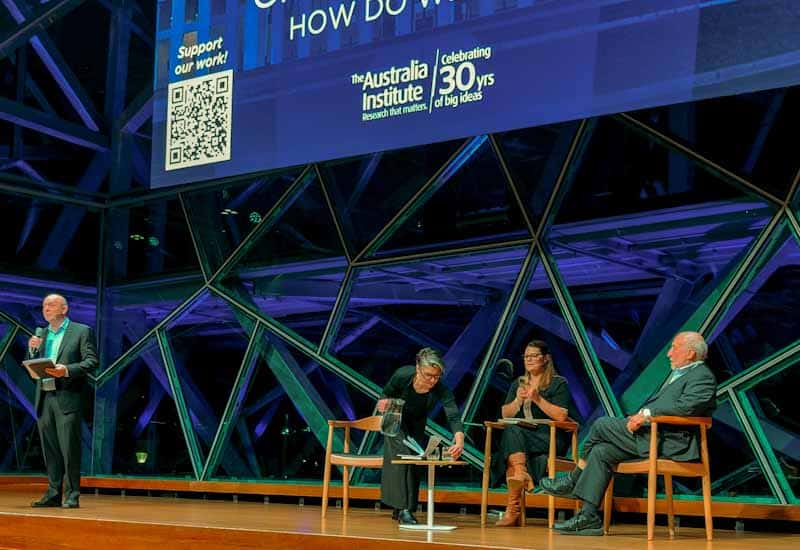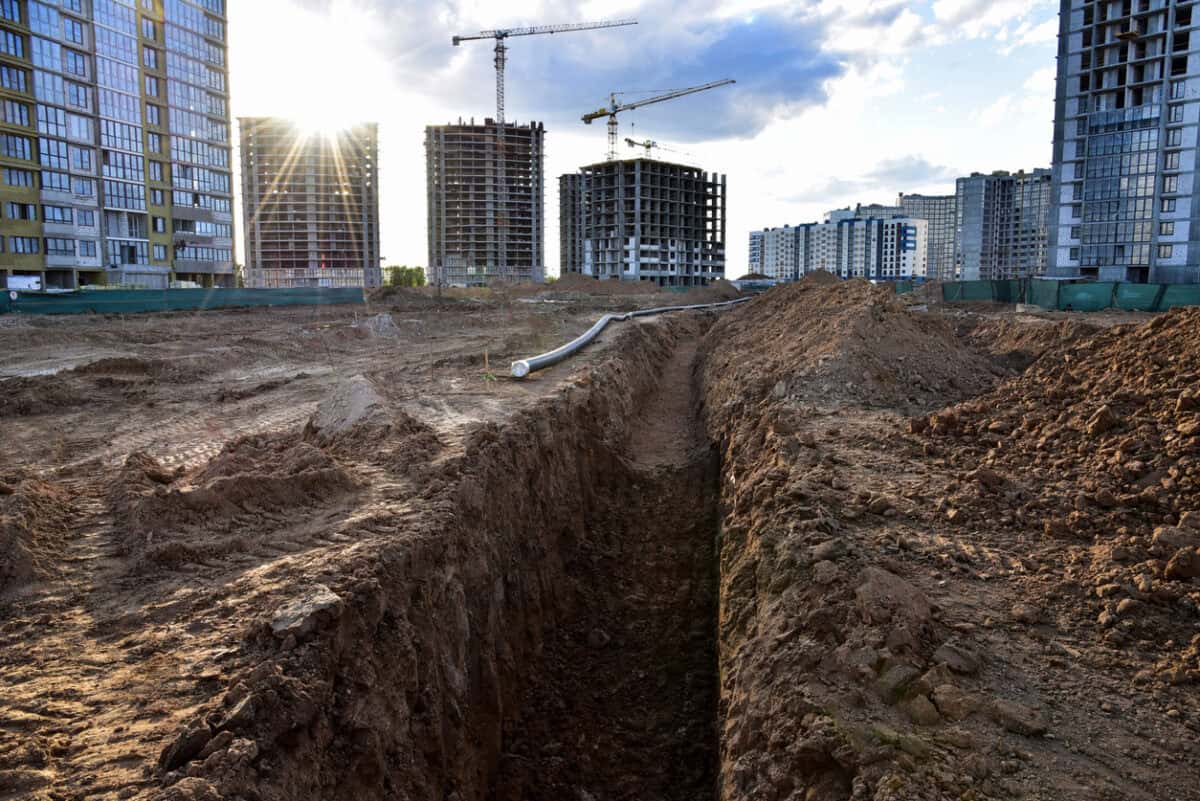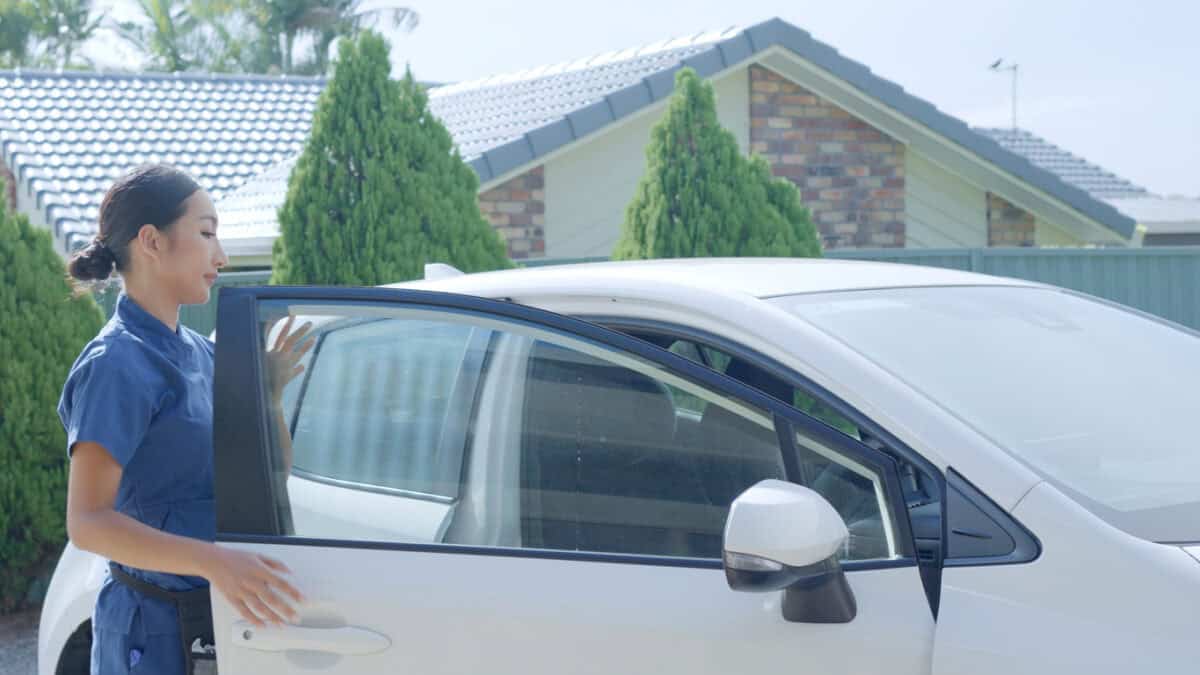What do Safe Work Australia (SWA) executives do outside National Safe Work Month? Several times each year, they appear before Senate committees. Recently, SWA’s CEO Marie Boland, Sinead McHugh, and Katherine Taylor spoke at a Senate Inquiry into the Digital Transformation of Workplaces.
Category: government
“don’t trick people” – Greenwashing and Safewashing
Nobel-prize winner Joseph Stiglitz does not write about occupational health and safety (OHS). However, he does write about the sociopolitical and economic context in which businesses operate and from which worker health and safety decisions are made. In August 2024, Stiglitz is touring Australia. On August 7, 2024, he addressed a packed auditorium in Melbourne.
The topic was Greenwashing. He shared the stage with Senator Sarah Hanson-Young and Polly Hemming. The event, and I think the tour, was sponsored by The Australia Institute. Why was an OHS professional at a greenwashing lecture? The tools, techniques, and preventions of greenwashing are often echoed in OHS.
Addressing Psychosocial Hazards at Work: New Incident Notification Reforms
On the afternoon of Friday, August 1, 2024, Safe Work Australia (SWA) announced important changes to the incident notification obligations in Australia’s Model Work Health and Safety laws. These changes are particularly relevant to the issues of psychological harm in workplaces and work-related suicides. I asked SWA for some clarifications on the changes and the promised guidance.
Below are the questions that I submitted to Safe Work Australia and CEO Marie Boland‘s responses.
Warning: this article discusses suicide
Trenching deaths and radio report
I am a fan of NPR’s radio program, All Things Considered. Occasionally, it reports on workplace health and safety matters. On July 19, 2024, it reported on the unacceptable number of deaths from trenching activities in the United States. The content was shocking and disappointing (the default setting for many reactions to occupational health and safety (OHS) matters), but the report’s format is an excellent example of journalism.
Yes, No or N/A?
Recently, SafeWorkNSW launched a health and safety campaign for those who provide services in people’s homes, essentially Home Care providers. The message is good and simple, but this article is less about the campaign than the risk assessment and checklist forms they promote.
Many checklists expect a Yes/No answer but fail to ask a question. SafeWorkNSW’s Home Safety Risk Assessment is an example of this problem.
Continue reading “Yes, No or N/A?”Sentencing and OHS prosecutions but few solutions
Most submissions to the inquiry into Sentencing Occupational Health and Safety Offences in Victoria are now publicly available. They raise a lot of different issues and some grumbles even though the Sentencing Advisory Council provided some structure to the topics it wanted addressed.
A major purpose of any penalty is to deter harmful and damaging actions from being repeated. SAC reiterates that any sentence
- deters the offender and others from committing similar offences;
- punishes the offender in a just manner;
- facilitates the rehabilitation of the offender;
- denounces the behaviour that the offender engaged in, and
- protects the community from the offender. (page 7)
The CFMEU’s Dr Gerry Ayers opens his submission with Deterrence by quoting Gunningham and Johnstone from 1999, who wrote:
The Human Rights of workers strengthens
Work health and safety is a fundamental human right. Last year, I asked “so what?” Australia is strengthening the relevance of this international human right at the local level, but you wouldn’t notice unless you looked hard.
The federal government’s Joint Standing Committee on Treaties has been receiving public submissions on the ratification of ILO Conventions 191 and 187. It’s such a hot topic that it received only two submissions!!; neither opposed the ratification, but they provide some useful context to the aims of occupational health and safety (OHS) in Australia.







